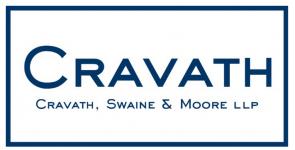The Cravath Scale, named after the Cravath, Swaine & Moore LLP, one of the oldest and most prestigious law firms in the U.S., is a salary structure that establishes a benchmark for lawyer compensation in the United States, specifically for associates. It is influential, driving salaries nationwide and internationally across top-tier law firms—often termed "Big Law"—. This article provides a comprehensive understanding of the Cravath Scale's origin, operation, benefits, criticisms, and implications for the legal profession.
Origins of the Cravath Scale
The Cravath Scale, named after Cravath, Swaine & Moore LLP, originated in 2007 following a decision by the firm to increase the annual pay for its first-year associates from $145,000 to $160,000. This move set a precedent among top-tier firms, causing them to adjust their compensation structures to stay competitive. The subsequent ripple effect resulted in the Cravath Scale becoming the de facto standard for Big Law compensation in the United States.
The Scale uses a lockstep compensation system, which differs significantly from the 'eat-what-you-kill' model. While the latter ties pay directly to an attorney's performance and billable hours, the lockstep system ensures that salaries increase with every additional year of service at a predictable, pre-set rate.
Understanding the Cravath Scale
The Cravath Scale functions as an annual salary scale that increases based on an associate's years of tenure within a firm. This allows for clear salary progression, as first-year associates earn a specific amount that increases as they gain more experience and seniority.
The transparency of the Cravath Scale lets every associate know their expected earnings trajectory from their first day in the firm. By implementing the Cravath Scale, law firms ensure competitive compensation to attract top talent from law schools while maintaining salary parity across their associate workforce.
Benefits of the Cravath Scale
The Cravath Scale, a salary structure many top-tier law firms use, provides a clear and predictable pathway for associate compensation. Named after the prestigious law firm Cravath, Swaine & Moore LLP, the Scale has revolutionized how Big Law firms attract, retain, and compensate their associates. Not only has it standardized salaries across the legal profession, but it has also transformed how law firms and their associates approach financial planning and career growth. The benefits of the Cravath Scale, while numerous, primarily revolve around six key areas: transparency, predictability, talent attraction, turnover reduction, budget planning, and creating a level playing field among firms.
• Transparency: The Cravath Scale clearly outlines the salary progression for associates, providing transparency that can reduce misunderstandings and foster trust within the organization.
Sample Scenario: An associate joins a law firm and immediately knows their
potential earnings for the first and subsequent years, assuming they stay with the firm. This clarity of information eliminates any uncertainties and can help set clear financial expectations.
• Predictability: The Scale provides predictable
salary increases tied to an associate's tenure rather than their performance. This predictability enables the law firm and its associates to plan their finances effectively.
Sample Scenario: An associate in their third year knows they will receive a predetermined increase in their salary in their fourth year. With this predictability in mind, they can plan their finances, investments, or major life decisions, such as buying a house or starting a family.
• Attracting Talent: By offering competitive, transparent, and predictable compensation, firms using the Cravath Scale are more likely to attract top talent graduating from law schools.
Sample Scenario: A top-ranking law school graduate is choosing between several law firms. The firm that uses the Cravath Scale provides clear information about salary progression, making it an attractive choice as graduates can anticipate their income over the coming years.
• Reducing Turnover: The Scale can help reduce turnover by eliminating salary negotiations and minimizing pay discrepancies, which can improve job satisfaction and retain talent.
Sample Scenario: An associate at a law firm feels secure knowing their salary progression is ensured and doesn't depend on negotiations or favoritism. This assurance might lead them to stay longer with the firm, reducing turnover rates.
•
Budget Planning: The Scale allows law firms to manage their budgets effectively as the salaries for associates of various tenures are pre-set and predictable.
Sample Scenario: When a law firm plans its annual budget, it can accurately forecast the salary expenses for the next fiscal year because of the Cravath Scale's predefined salary increases.
• Level Playing Field: The Scale fosters a level playing field among top-tier law firms as it standardizes compensation, allowing firms to compete on factors other than salary.
Sample Scenario: Two law firms are vying to hire the same top-notch law school graduate. Since both firms use the Cravath Scale, the decision comes down to factors other than salary, such as firm culture, work-life balance, or professional development opportunities.
See Related Articles:
Criticisms of the Cravath Scale
While the Cravath Scale has garnered significant praise for its transparency and predictability, it has also faced its share of criticism. Detractors have raised concerns about the rigidity of the model, its impact on firm culture, and suitability for a diverse range of law firms. Critics argue that its one-size-fits-all approach to compensation may not serve the best interests of high-performing associates, smaller or mid-sized firms, or those grappling with economic uncertainty. The following are the key criticisms often leveled against the Cravath Scale:
Lack of Merit-Based Rewards: Critics argue that the lockstep model doesn't reward high-performing associates adequately, which can lead to dissatisfaction and attrition among top performers. High-performing associates who bill more hours or bring in more clients than their peers may feel their contributions are not being adequately rewarded.
Financial Pressure on Law Firms: The Scale can significantly burden law firms, especially during economic downturns. Maintaining the set pay levels to attract and retain talent can become challenging when the firm's revenues are low or uncertain.
Culture of Overwork: The high salaries established by the Cravath Scale can potentially foster a culture of overwork. To justify these compensation packages, firms often expect associates to bill many hours, leading to stress, burnout, and a poor work-life balance.
Limited Flexibility: The Scale's lockstep system offers limited flexibility for individualized compensation, which could be problematic for firms that prefer a more nuanced approach to associate pay based on factors such as specialty, performance, or market conditions.
Not Suitable for All Firms: The Cravath Scale may not be viable for smaller or mid-sized firms or those outside major markets. These firms may not have the financial capacity to match the Scale's high pay rates and might prefer different compensation models more suited to their operational style and capabilities.
Implications for the Legal Profession
The Cravath Scale has significant implications for the legal profession. It shapes how top law firms attract talent, structure their compensation packages, and maintain their competitive standing. It also contributes to standardizing pay within the industry and defines the financial dynamics of working in Big Law.
The Scale has also set trends internationally, influencing top law firms in other countries to align their compensation with it. However, it's worth noting that its prevalence is primarily within large, market-leading law firms. Many smaller or mid-sized firms, or those outside major markets, may not follow the Cravath Scale, instead opting for compensation models better suited to their size and capabilities.
Conclusion
The Cravath Scale has profoundly impacted compensation strategies within the legal profession. Despite criticisms, the system offers transparency and predictability that benefits both associates and law firms. While it may not be the ideal solution for all, its influence on the financial trajectory of many young lawyers' careers is undeniable. As the legal profession continues to evolve, the Cravath Scale will likely remain a topic of spirited discussion.





